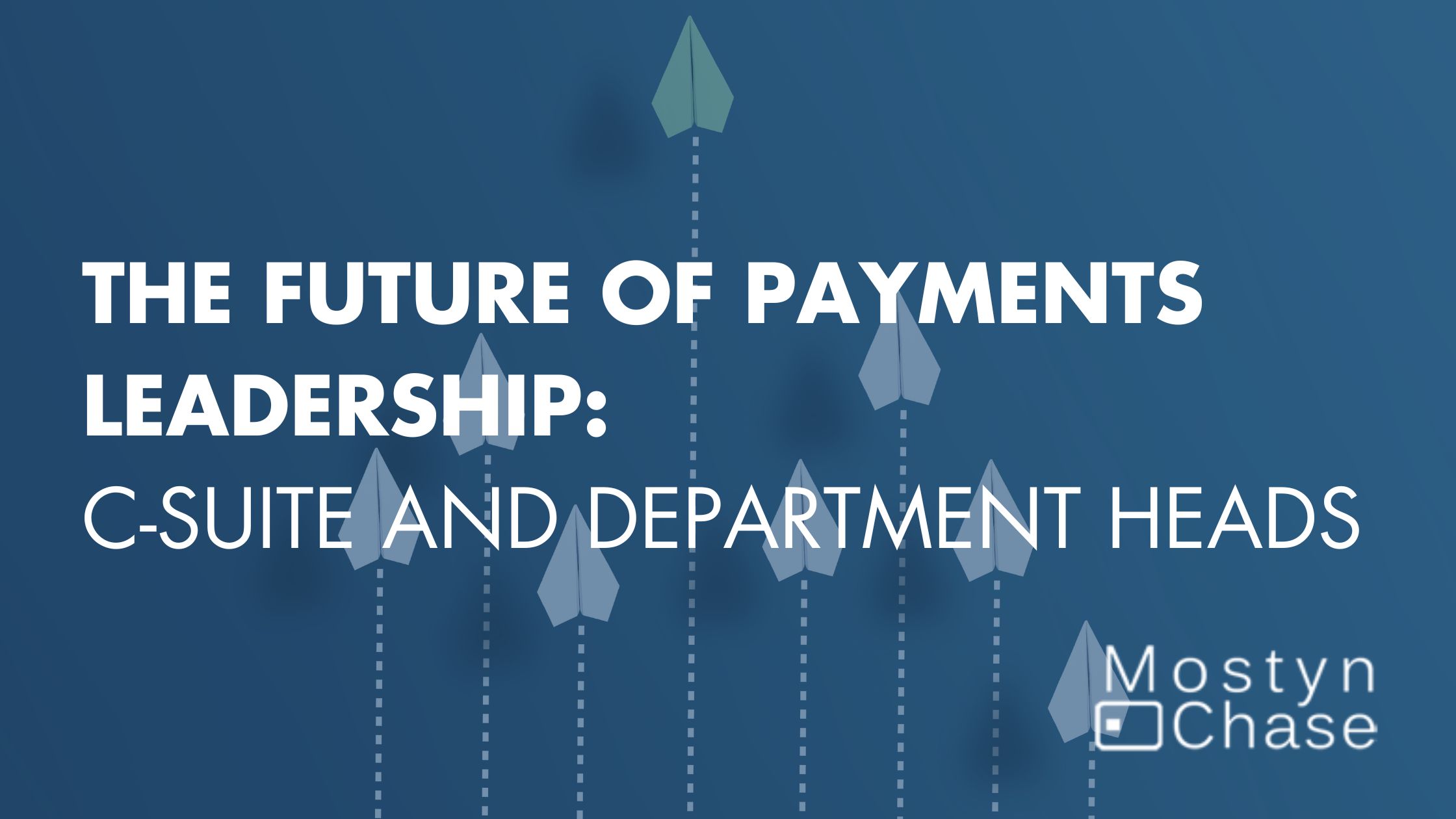The Future of Payments Leadership: C-Suite and Department Heads
In the ever-evolving landscape of the payments sector, the role of leadership has never been more crucial. As leaders navigate the challenges and opportunities presented by technological advancements, regulatory changes, and shifting consumer expectations, the need for innovative and adaptable leadership is paramount. This article explores the significance of leadership roles in the payments sector, outlines the skills and qualities sought after in C-suite and department head candidates, and delves into how these attributes align with the industry's evolving needs.
Significance of Leadership Roles in the Payments Sector
Leadership in the payments sector is not merely about overseeing transactions; it's about steering organisations through a dynamic and rapidly changing environment. The payments industry is at the forefront of technological innovation, and leaders must guide their teams to embrace and leverage these changes effectively. As new players enter the market and consumer behaviours evolve, the decisions made by C-suite executives and department heads have far-reaching implications for the success and sustainability of payment organisations.
Skills, Qualities, and Competencies Sought After
1. Technological Acumen: Leaders in the payments sector must possess a deep understanding of emerging technologies. Blockchain, real-time payments, and open banking are reshaping the industry, and leaders need to comprehend not only their current applications but also anticipate future developments. The ability to harness these technologies to improve efficiency, security, and customer experience is a key competency.
2. Adaptability and Innovation: The payments landscape is in a constant state of flux, driven by technological advancements and changing consumer expectations. Leaders must be agile and innovative, capable of adapting strategies to stay ahead of the curve. The willingness to explore new ideas and take calculated risks is crucial to foster a culture of continuous improvement and innovation within the organisation.
3. Regulatory Expertise: Navigating the complex web of regulatory requirements is a fundamental aspect of leadership in the payments sector. Leaders must stay informed about evolving regulations, ensuring their organisations not only comply but also proactively shape industry standards. The ability to collaborate with regulators and advocate for policies that foster innovation is a sought-after skill.
4. Strategic Vision: Leaders must possess a strategic vision that goes beyond short-term gains. The ability to anticipate industry trends, identify growth opportunities, and position the organisation for long-term success is a defining quality. Strategic decision-making is crucial in an environment where the next big disruptor could emerge at any moment.
Factors Driving the Need for Innovative and Adaptable Leadership
1. Evolution of Social Media: The influence of social media on consumer behaviour and expectations cannot be overstated. Leaders need to understand and leverage the power of social platforms to connect with customers, gather insights, and enhance the overall payment experience. Social media is not just a communication tool but a strategic asset that leaders must harness to stay competitive.
2. Tech Innovation Takes Centre Stage: The rapid pace of technological innovation, particularly in blockchain, real-time payments, and open banking, demands leaders who can capitalise on these advancements.
Organisations that embrace and integrate these technologies seamlessly will gain a competitive edge, making tech-savvy leadership a cornerstone of success.
3. Digital Currency Accelerates: The rise of digital currencies, including the exploration of central bank digital currencies (CBDCs), requires leaders who can navigate this new financial landscape. Understanding the implications of digital currency on traditional payment systems, security, and global transactions is essential for leaders steering their organisations into the future.
4. Biometrics and the Dawn of the Metaverse: Biometric authentication methods and the emergence of the metaverse present new opportunities and challenges. Leaders must be adept at integrating biometrics for enhanced security while exploring the potential applications of virtual and augmented reality in the payments space. The metaverse introduces a new dimension, and leaders need to strategise how to leverage this immersive digital environment to meet consumer needs.
In conclusion, leadership roles in the payments sector are pivotal to the industry's success. The evolving landscape requires leaders with a diverse skill set, ranging from technological acumen to strategic vision. As the industry continues to embrace innovation, those at the helm must possess the foresight and agility to navigate the complexities of the modern payments ecosystem. By fostering a culture of innovation and adaptability, leaders can ensure their organisations not only survive but thrive in the dynamic world of payments.
If you are looking for a recruitment partner who can guide you throughout the hiring process for payments leaders, please reach out to Mostyn Chase.

